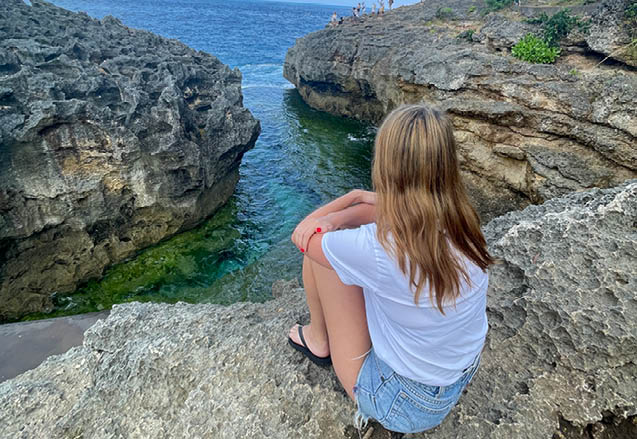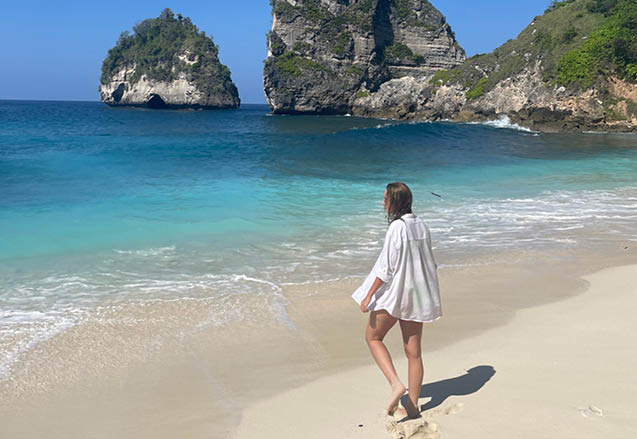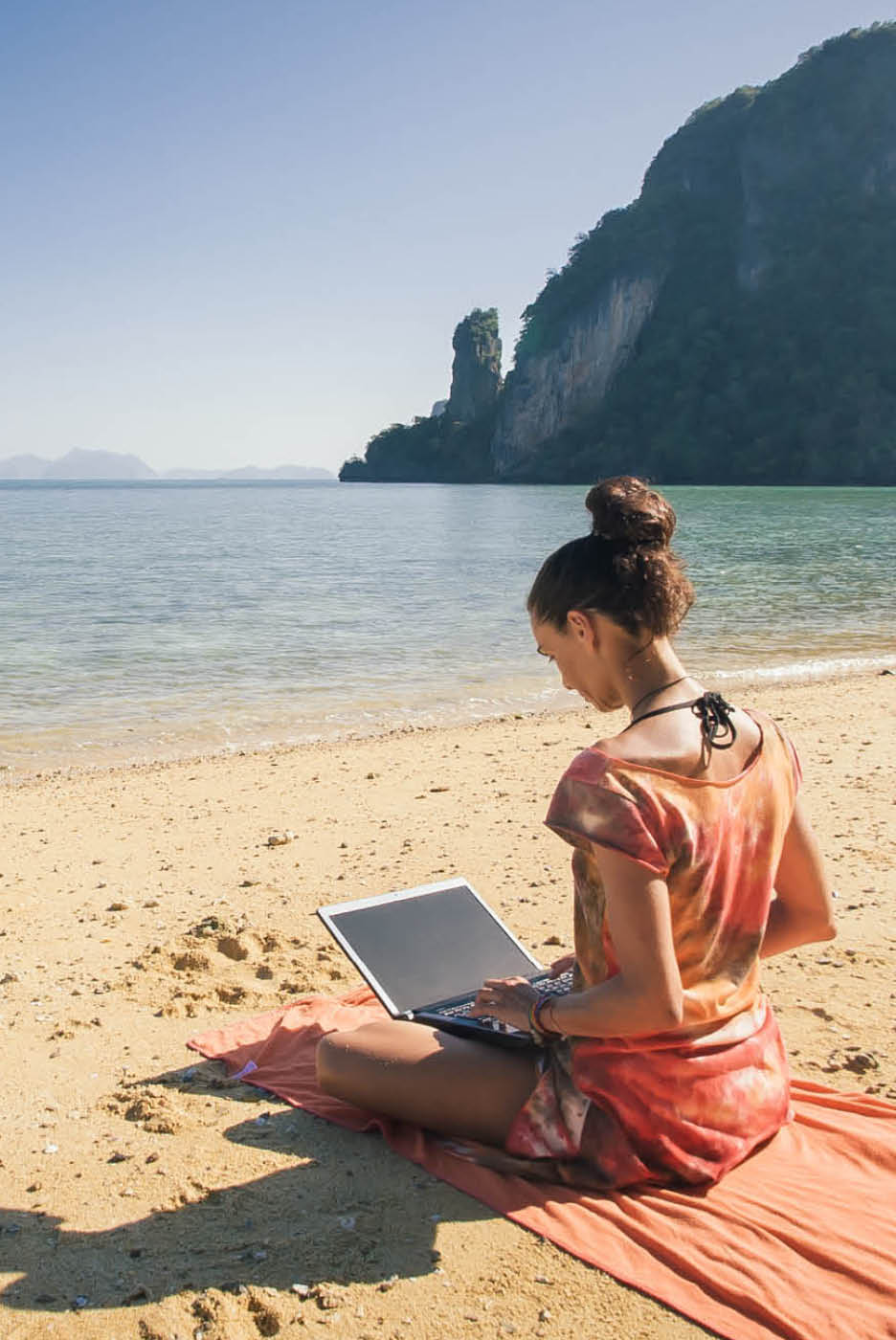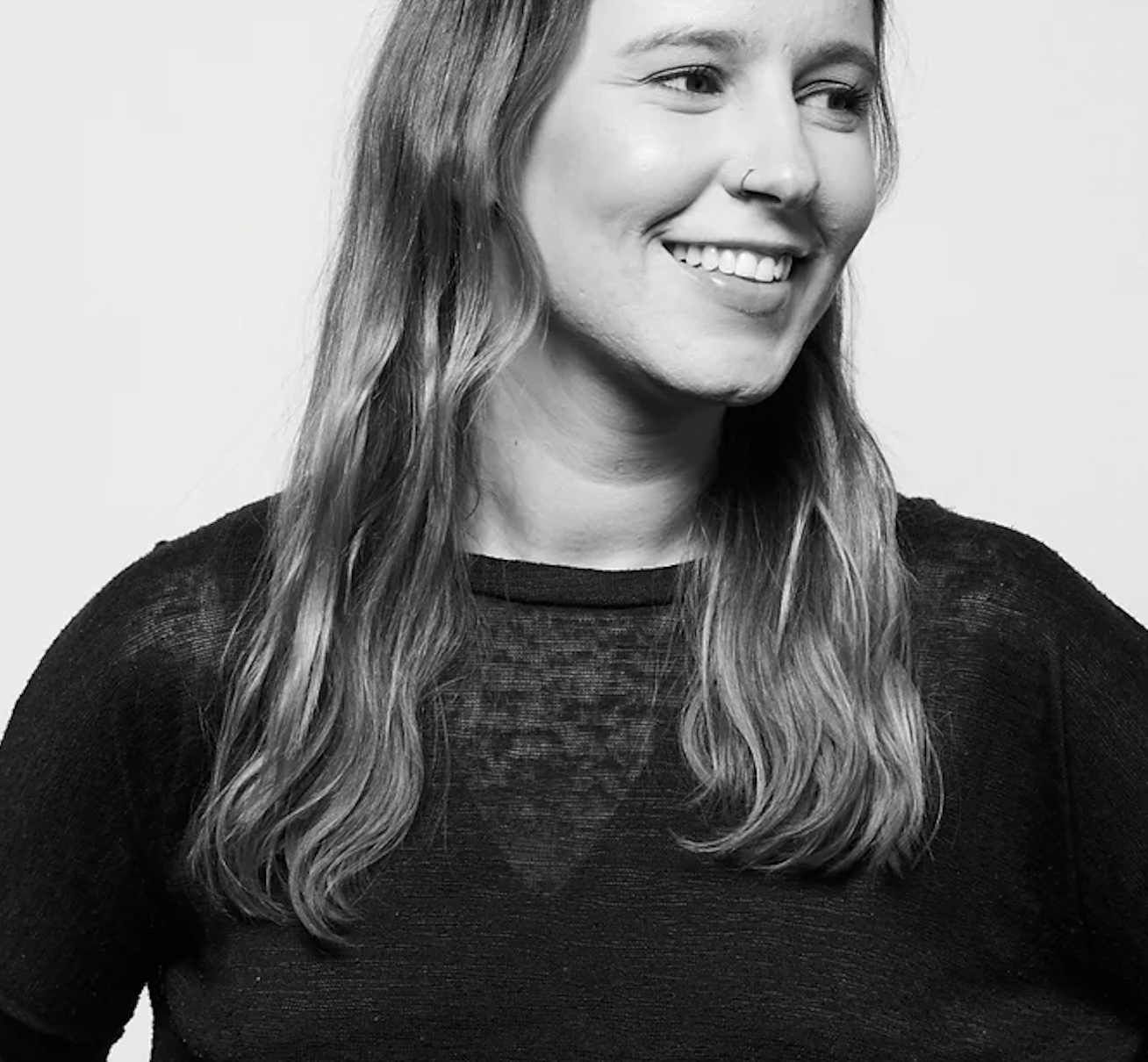Being able to work while travelling is the dream, right? At least that’s what I was told by my family and friends while working from Indonesia in May and June this year.
And sure, it had its moments. Having a dip in the ocean before a meeting, getting a relaxing massage during an extended lunch break and clocking off at 3pm to read by the pool are hard benefits to debate.
But there were other times – such as the afternoon I spent running around Ubud, dizzy with an ear infection, trying to find stable internet (bless you, Suka Espresso) – when the dream felt like a nightmare, for both me and my clients. I’m not complaining, but what I’ve learnt is that a successful workation does need a bit of… work. Or at least, planning.
“I think there’s benefits to having the flexibility to work while on holiday. But I don’t think you should see it as a holiday,” says Chloe Hamman, Director of Product People Science at employee feedback platform Culture Amp, and an experienced workationer. You don’t get the psychological reset that comes with a regular holiday, she adds, which is necessary for you to properly recharge.
I don’t think you should see it as a holiday
‘Workation’ hasn’t entered Merriam-Webster yet (doubtless it’ll make an appearance soon), but, as the word suggests, it’s when both work and a vacation are combined, generally for a few weeks at a time.
To my mind, it’s the perfect solution to seeing the world and having new experiences without exhausting annual leave in the process. Pre-COVID-19, travelling overseas for an extended period meant, in some cases, giving up your job. Now, that choice seems unnecessary, for white-collar workers at least. If lockdown has taught us anything, it’s that we don’t need to be chained to an office desk to be productive.
Companies are catching on, perhaps fearful of losing staff in a highly competitive employment market. Earlier this year, Twitter recognised that the world is shifting after years of COVID restrictions and, as part of that, allowed their employees to make the decision to work where they “feel most productive and creative”.
Major hotel chains such as Hilton, Four Seasons, Hyatt and Marriott International have also introduced programmes that allow employees to work from their hotels in Europe, Indonesia, America, Thailand, South America and more.
A UK-based travel firm, TUI, even has employee packages of one-to-three weeks at all-inclusive hotels in Jamaica, Spain, Greece, Portugal or Jamaica. And a company called Workation offers working holiday packages across Europe, promising to organise everything from networking to accommodation with high-speed internet.
Workations also allow a slower and longer approach to travel. Long-term Airbnb bookings were at their highest between January and March this year, having more than doubled since the same period in 2019. When the urgency to get back into the office is removed so, too, is the need for a stressful, jam-packed holiday itinerary. An opportunity to actually take in a different culture, rather than just the tourist attractions, arises.

Hamman says the workation also promotes better work-life balance, as you’re inspired to take “micro-breaks” during the day, rather than eat at your desk.
“You’re more likely going to take a break during the day because you’re in a location that you’re interested in,” she says. “So you’re probably going to go outside, have an hour’s lunch break, maybe finish a little bit earlier, maybe not work into the evening — because you’ve got things to do.”
The dream! Or is it?
“It can’t be seen as a substitute for going on holiday and having an extended period of psychological distance from your work, where you’re not actually thinking about work,” Hamman says. “And if people are working on holiday, they’re not getting that. “
A workation looks different to a holiday for a few other reasons, too.
Financial issues remain even if your income continues. Paying for double accommodation is a bank-account killer — granted, the opportunity to sublet is always there, but it’s tricky to find someone whose available dates coincide with your own. And it requires planning.
In fact, so much of the workation requires planning. More than that of a normal holiday (which is already a lot).

You choose accommodation based largely on wifi access and whether a room has a desk. You’ll scrape Airbnb and Booking.com reviews for information around connectivity. Backup cafe and coworking space options must be googled.
And even then, nothing is a sure thing, as Kate Parker of Atlas PR discovered during a one-month stint in Bali earlier this year.
“I once had a morning meeting and was having my coffee, all ready to go, when I realised the charger to my laptop wasn’t working. In fact, nothing at the hotel was working. I checked with management and the whole area of Uluwatu had no power,” she says.
And this is all if you can actually find the discipline to… work. If the point of travel is to enjoy a new destination, how can someone do that if their eyes are glued to a screen? Should you really be working, which is all we did for two years, or should you be soaking in the attractions of another country?
“I don’t do any big activities like hikes or sightseeing throughout the week — I save that for the weekends, when I have the time,” says Parker, displaying enviable self-discipline. “After work hours, I’ll go out for dinner or to a bar to meet some people.”
Boundary-setting is the most important component of a working holiday. If an overflowing washing pile, delivery man or screaming child can pull someone away from their at-home desk, then an oceanfront view or an unfairly attractive person proposing a sightseeing activity can do the exact same thing.

If you’re aiming for the most efficient and soul-reviving workation, then Hamman recommends a week away from emails before you resume work. No one can focus properly – no matter where in the world they are – if they’re burnt out.
Now, I’ve become more discerning about the projects I accept (I’ve realised that if I’m not excited to work on a project when there are overseas experiences calling my name, I really shouldn’t be punishing myself while at home.) And while I’m home now, I’m leaving for another month-long stint in Bali next week.
That’s the danger of the workation. Once you’ve mastered it once, it’s hard to go back.
Meet The Top 5 Places For A Workation
Handpicked by travel writer Georgia Hopkins of It’s Beautiful Here
Lisbon, Portugal
There is something about Lisbon’s light, its vibrant mix of old and new, and progressive start-up culture, which makes it a very enchanting place to be. Not only that, but you’re close to awesome surf breaks and beautiful beaches only 30mins from the city. Wifi connectivity is good, there are many co-working spaces (or great cafes from which to work), and there’s an amazing restaurant scene. Base yourself around beautiful Principe Real (they have a gorgeous farmers’ market in the square each Saturday) where there are many Airbnbs.
Athens, Greece
With many Athenian expats returning to the city during the pandemic, there is a renewed energy and creativity in the city. Along with Lisbon, this is my other favourite city in Europe. I recommend booking an Airbnb in the buzzing neighbourhood of Koukaki (this one is my favourite) where wifi is pretty good, and you have great coffee around the corner (try Morning Bar – and then head to Drupes for a spritz in the evening).
Buenos Aires, Argentina
An amazingly vibrant city, rich in culture, Buenos Aires is another great place from which to work. The cost of living is low, there are plenty of laptop-friendly cafes and wifi connectivity is pretty good. I recommend finding an apartment in Palermo Hollywood to be right in the action.
Mexico City, Mexico
Mexico City to me is a bit like a mini (and more affordable) New York. There are beautiful big parks, stunning art galleries and museums, lots of great food (ranging from amazing street food, to impressive food markets, and high-end restaurants), fun nightlife, and it’s affordable. There are plenty of co-working spaces with good internet. I recommend booking a place around the Roma neighbourhood.
Austin, Texas
The home of barbecue, Austin is a very fun city with an amazing music scene. Plan your visit around SXSW in March – amazing! – or Austin City Limits in October. Internet connectivity is fast, the community is warm and welcoming, and there are heaps of things to do, including trips to nearby lakes and rivers, and plenty of hiking trails.













No Comments